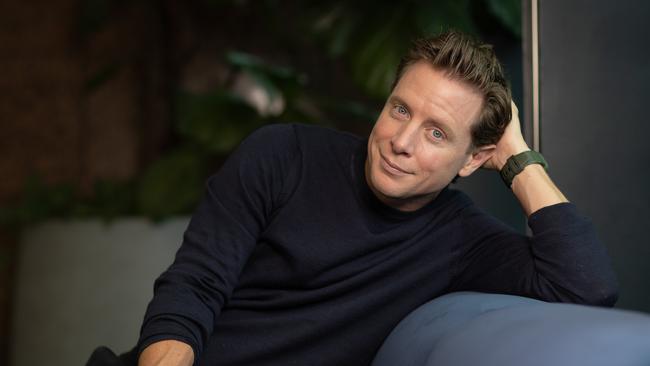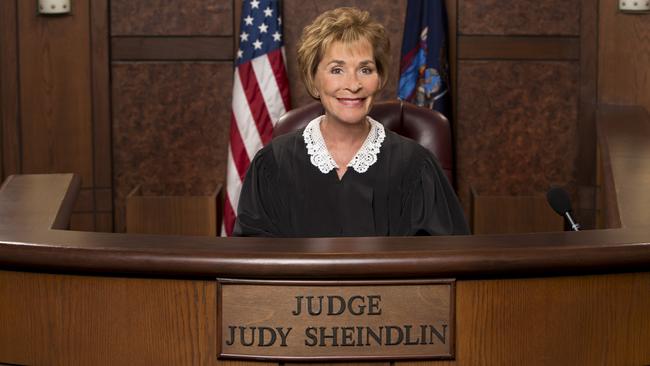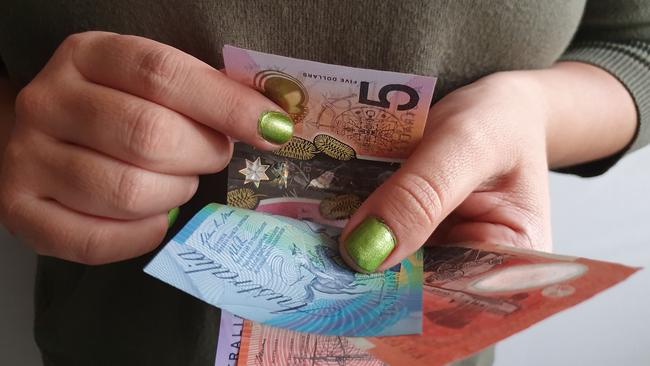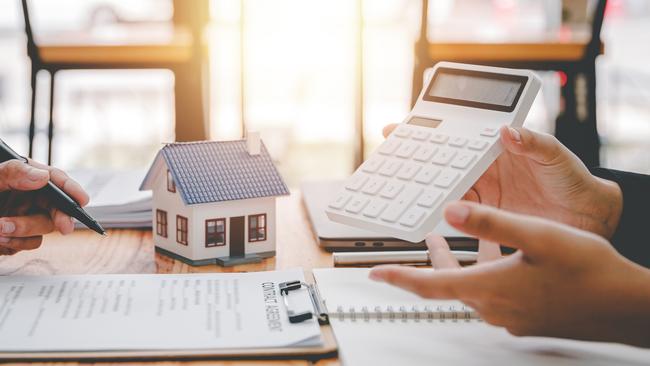Scott Pape reveals his strategy for investing
When it comes to investing your money there’s a simple thing most of us get wrong, an expert claims.

Business
Don't miss out on the headlines from Business. Followed categories will be added to My News.
On Sunday night, after the kids were fast asleep (for the third time), I lay in bed and opened my calendar to check what I had on for the week ahead. And up popped my favourite ‘event’:
“Check your dividends, Big Boy!”
“OH YEAH!” I exclaimed, loud enough to startle my sleeping wife.
She squinted at me: “what is it?!”
“It’s dividend week!” I told her wide-eyed.
“You’re … a weirdo,” she sighed, and rolled back over to sleep.
One hundred per cent, though she knew that when she married me. Yet, I thought you might find it interesting to hear how I invest my money.
Let’s get into it.
These days I have roughly 95 per cent of my networth in a handful of low cost Exchange Traded Funds (ETFs).
Which ones?
An Aussie shares index fund, and a couple of international shares index funds.
That’s it.
While I’m classified as a ‘sophisticated investor’ I believe in my bones that keeping things simple is the ultimate high net worth strategy – and one which will deliver higher returns than the vast majority of professionals. Even better, it also means I spend as little as four hours a year managing my investments.
How?
Well, to start off I don’t have a trading app on my phone.
Why not?
For much the same reason that I don’t have social media apps on my phone: when I’m on the throne, the only thing I want to be scrolling is toilet paper, not TikTok.
I don’t want to check my share prices every day, or even every week. It’s a trap that leads to stress, and overtrading, and ultimately, to flushing your returns down the toilet.
Here’s what I do instead:
I have put my investments on autopilot, automatically buying a set dollar amount of the above funds each month. (It used to be expensive to do this, today you can trade for a few bucks, or in some cases, for free).
When you buy Exchange Traded Funds (ETFs) you can google their historical payout dates and put them in your calendar, like I do. And that means I check my share prices just four times a year … like this week when my dividends come through. That way you can do something more productive with your time … even scrolling TikTok on the tot!
Tread Your Own Path!
The Betrayal
Hey Scott,
We have – well, had – a much-loved receptionist. She was like a second mum to our child. Even took paid time off to go as the grandparent/important person day at her school. She was paid above award wages and was looked after with bonuses and gifts for the last seventeen years. Here is the kicker, I caught her stealing! Cash out of my wallet on my birthday! The look on her face as I watched from the door was not one of guilt or fear of getting caught, but quiet intent, as if it was normal activity. I pretended not to notice, but I was shocked to my core. This was right before she went on holiday. While she was away on holidays, I called the local detectives and asked for advice. Here’s where I have a conflict: do we prosecute or not?
Sally

Hi Sally,
Should you prosecute?
HELL YES.
If I were in your shoes I’d want to see her face a (pre-morning coffee) Judge Judy.
And I’d also employ a forensic accountant to look over your accounts and see if she has stolen any money from the business. If they find anything, you should hand that over to the cops and add that to the rap sheet.
I know the hurt and betrayal must be weighing on you, and the prospect of a drawn-out drama might fill you with dread, but I’d encourage you to see it through – if not for a sense of resolution for you – but as a way of helping her next boss.
The End of Cash
Hi Scott,
I’ve heard some talk lately (a lot more than the normal conspiracy theories) around the removal of coins and then notes from the Australian monetary system. Moving Australia to a completely cashless society. The discussion between Linfox, the government and the banks all revolves around how expensive it is to “move” coins around the country for regional post offices, banks, corner shops, etc.
The proposal is that the $1 and $2 coin will become notes again to reduce weight. This whole concept is so very scary. It does mean there’s a lot more traceability of payments and business transactions, and the ATO will see everything!
Lyn

Hi Lyn,
It’s always puzzled me why paying for something with cash doesn’t have a surcharge like cards do.
After all, there’s a huge cost to taking cash: think of the shopkeepers who have to walk to a bank holding more money than a homie in a rap video. Or Armaguard, who have two pistol-packing blokes driving around in an armoured tank.
Now the truth is that we basically already live in a cashless society: according to the Australian Banking Association, cash is being used for less than 13 per cent of payments, and it’s sure to continue dropping in the future.
So we’ll get rid of cash?
I don’t think so, as much as the ATO would love it.
A good case study is Norway, which is the world’s most cashless country, with only 2% of payments being made with cash. Yet they are currently legislating the right for its citizens to continue paying with cash to ensure that they are “prepared for emergencies” (like when the Artificial Intelligence Robots shut down our digital payment systems, and have us dance like monkeys for their entertainment – we’ll need notes and coins as a backup).
While I don’t see an end for cash, I do see a future where there is a surcharge on paying with cash.
Barefoot-Approved Home Loans?
Hi Scott,
I was scrolling Instagram the other day and I came across a group called “unbiased mortgage brokers”, who have “recommended by the Barefoot Investor” at the top of their page. Before I book an appointment, I just thought I’d check that you do recommend this home loan provider?
Jerry

Hey Jerry,
Thanks for checking!
I’ve never heard of them. However, I am very happy to give you a recommendation: stay away from “unbiased mortgage brokers”, and anyone else (other than financial counsellors) who claims that I recommend them.
The Golden Child
Hi Scott,
My parents ended up losing their jobs last year, and still had debts amounting up to a total of $80,000 (a mixture of credit cards and fixed term loans). I have been making repayments for these, and, by my calculations, I should be able to finish paying off these debts by October this year. I’m trying to figure out the best way to help them after this. They’re both receiving Centrelink retirement payments each month, which are minimal. I would like to supplement their income, though I am worried about how they’d be spending it. Is it advisable to open up a joint bank account with my parents?
Annie

Hi Annie,
Let’s stop for a second and acknowledge your sacrifice:
You are an amazing daughter!
I’m sure your parents really appreciate what you’re doing – and if they don’t – remind them.
If I were in your shoes, when October rolls around, I’d re-establish some boundaries … and cut off the money. Still, that’s easy for me to type and incredibly hard for you to do.
To soften the blow, I’d encourage them to have a meeting with a Financial Information Service Officer (FISO) at Centrelink, and have them do a Statement of Financial Position and a budget that shows them how they can live off their pension.
I don’t know if you can afford to keep funding your parents lifestyle, and what the ultimate long-term effect it will have on your retirement. Yet I’d encourage you to think about that deeply. As they say on the aeroplane safety message, you need to fit your own mask first.
More Coverage
Originally published as Scott Pape reveals his strategy for investing




